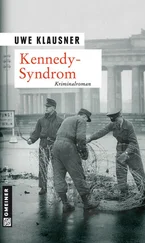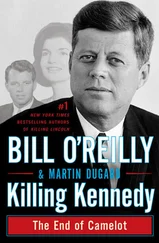Everyone agreed that Hector’s presence settled other dogs as they passed through to the vet, or stepped out for trial visits with prospective owners. And he was pleasant for the humans to have around, either slumped on his rug — he’d seemed to invite the offer of a rug — and breathing gently, or pottering, nudging, leaning, peering up with a confiding, consoling, beseeching expression.
He’s a smooth operator is Hector. One of us will get him a credit card before the month is out. Probably me. If my credit rating was better, it would be me.
Although Hector did spend his nights in a pen amongst the other rescue dogs, his profile had been quietly removed from the gallery of candidates available for rehoming.
I wouldn’t put it past him to have focused on me, because it’s my job to do that kind of thing.
The other dogs continued to be, ‘Donny: a placid and patient boy, suitable for a family with young children,’ and ‘Tosh: he keeps us all laughing with his antics,’ or ‘Daisy: a loving dog who would need alone time to be introduced slowly at first.’ And so on.
The and so on involved not only dogs, but cats, rabbits, gerbils, goats, even, six battery hens. These were difficult times and difficult times made pets untenable and so GFH — the Gartcosh that wasn’t, the farm that wasn’t, the home that wasn’t; like a riddle or a fairy tale of some kind — was fuller than ever with small lives it had pledged not to destroy (unless they were unhealthy) but which it increasingly feared it could not accommodate.
There’s nowhere to put them. Freddy the goat enjoys having more goats around, but they eat like a herd of goats might be expected to and there’s one donkey and another on the way — there’s not a lot of space for new pens, or new buildings. And even less money to meet more need.
It’s like in World War II, people turned out their animals back then as well: they dumped them, or murdered them, and this is that again. There were feral cats in shoals on Clapham Common. Hundreds of thousands of hearts being stopped and trusts broken. This is like that again. It will be like that again.
Meg knew the loss of pets hadn’t been the worst thing about the war, but it was still vile in its own way and shouldn’t be replaying in peacetime. There shouldn’t be families queuing up for clothing handouts and tinned goods, as if they’d been blitzed, and no one should have to abandon or harm any type of domestic friend.
Certain individuals take to it, though — cruelty — and would enjoy it at any time.
Somebody brought in a greyhound last week with both its front legs broken. Ditched by a road, a sandy-coloured greyhound, they’d found it just thrown out like nothing and by a motorway — not a road, somewhere more unsurvivable than a road. The wounds were infected, infested. There was opened bone.
She didn’t, despite working in a shelter, have much to do with the animals’ welfare, other than indirectly. Meg very rarely met them, rarely saw them when they had no future.
But I was there when they delivered the roadside dog. I saw its face. The eyes. It looked so tired. And it was still trying to do what might please us, but it wasn’t managing. It couldn’t move as it intended any more.
Meg was an office person. Insulated. When she’d come in to talk about the job and was all nervous at the interview, she’d nonetheless been insistent about that. It was a risk, getting emphatic, but she’d written a script out for what she should say, if and when she met them at GFH, and she’d semi-learned it so she’d have confidence and that meant she could be calm and straight with them. It turned out they quite understood her reasons for wanting to be boxed away. Honesty could backfire, but in this case it hadn’t. They liked dented creatures at GFH. They’d hired her. Mr Davis had hired her. She was expected to work for twenty hours a week — which was, conveniently, both all GFH could give her and all that she could take.
They put the greyhound down, which it would have understood as going to sleep. The process would have felt like resting and being offered kindness and the end of pain and wouldn’t have troubled it.
I was the one who was troubled: seeing it try to stand. And I was troubled by imagining somebody breaking its legs, either before or after putting it into a car, or into something, putting it into the boot of a car, the back of a Land Rover, a van, crippling it and then chucking it away.
I cannot identify with deciding to break a living creature’s legs and so the act sticks in my thinking. I cannot climb down into the mindset of somebody who would do that … It’s a puzzle I return to because it’s got no solution. Picking at something with no solution is a nice low-grade kind of self-harm I can really get behind.
But I would rather not have this on-board — not any of this information.
The Emergency Section, the rescue people — I couldn’t do their job. I would be constantly furious.
Some of them are. Like David, he does look constantly furious. Except when he’s sitting on the grass in one of the exercise gardens and letting the dogs come and make a fuss of him. They can tell he needs affection.
Hector was a master at that: the provision of timely love. He had greeted Meg when she came in, fresh from her hospital appointment — fresh was the wrong word, but it would do — as if she were his best, best girl. He’d nuzzled very delicately at her hands and hadn’t bustled. His courtesy had made her unsteady, blurred the room for a moment. And he had kept closer to her than usual ever since, which she wouldn’t have thought possible without her wearing him strapped around her in some kind of harness.
He’s a proper liability if you’re trying to get downstairs — right under your feet every step. Always manages not to trip you, though, which is the way with spaniels. Otherwise there’d be mountains of pensioners killed by them every year. Heaps of dog-owning corpses found on suburban landings and in stately hallways.
But Hector’s generally careful — abused animals are. He knows when he’s being annoying and he stops then before you get cross. The prospect of a human getting cross makes him craven, sets him sliding along the floor away from anticipated bad stuff to which neither of us should particularly give headspace — bad stuff that happened earlier.
Like in the kids’ shows I used to watch — ‘Here’s one we made earlier.’
Hector the cautious, nervous case.
It’s reasonable to be a cautious, nervous case.
And I’m not an idiot. I do know, I have worked it out: people who’ve been damaged by people go and work with salvaged animals because the animals have also been damaged by people — but they aren’t people, so they’re OK.
And the animals are also not idiots.
Hector’s bright. He’s probably brighter than me. He’s the lots-of-greats-grandson of that first clever wolf that trotted up out of the dark and lay by some human fire somewhere and looked useful and fond and dependable: a trainable asset.
Smart, but not smart enough to know that we might hurt him.
He does try, though, to be safe. If you’re loved, you’re safer, so you need to induce love.
Hector is training me to love him.
No need to argue about whether I need a fresh education from a dog with shocked ears and a bathroom fetish. I’m a bankrupt accountant — two words you don’t want in the same sentence, or anywhere near your CV. I’m working part-time, because I couldn’t cope with full-time, in a home for broken animals … I’m clearly in need of help and advice from any quarter, thanks. I’ll have whatever’s on offer, thanks.
Читать дальше












